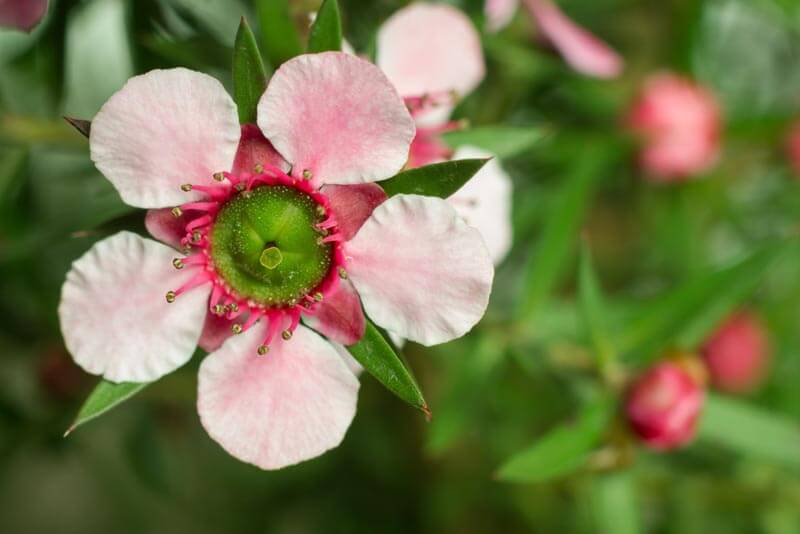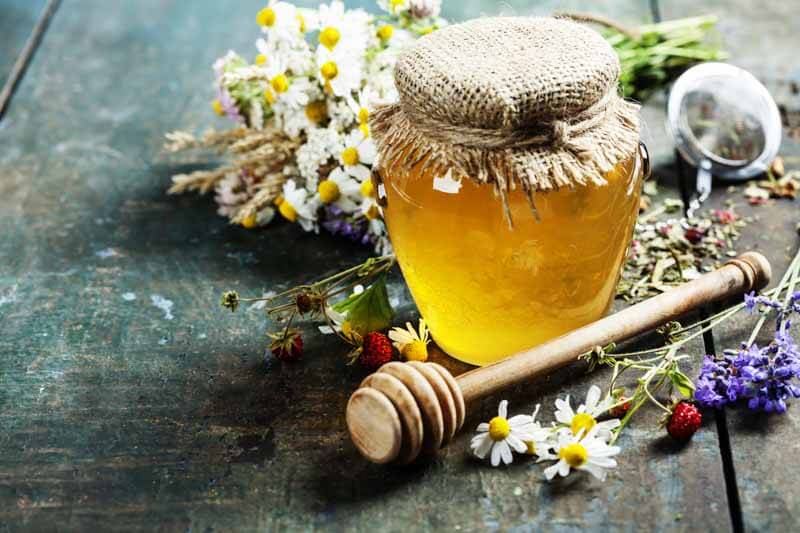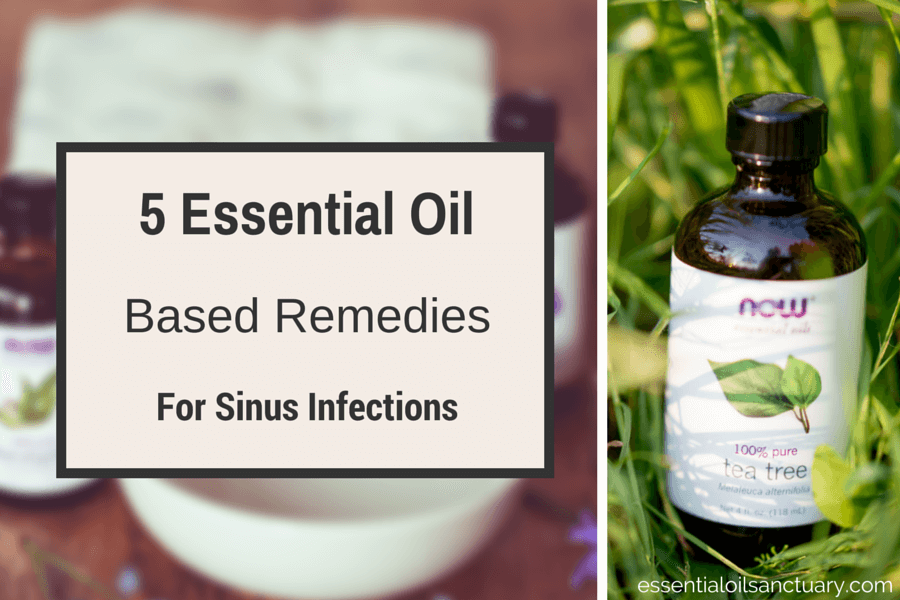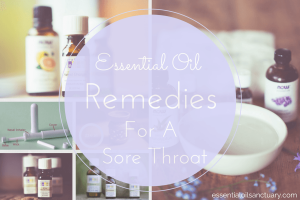
It starts with a stuffy nose.
Then, next thing you know, your whole face starts to feel congested. You feel intense pressure, and your sinuses are no longer draining. You may even start to feel a headache.
By now you likely know what this means.. a sinus infection is brewing.
Sinus infections are an uncomfortable condition often caused by an infection or inflammation of the mucous membranes lining the bony cavities behind, above and on each side of the nose. An acute sinus infection is often accompanied by congested headaches, catarrh, and a fever.
If you’ve been experiencing chronic, long-term sinus infections, then you’ve likely found your nose has been blocked for long durations. You can feel the blockage along with dull pain and tension between the eyes.
And it’s not a fun experience.
Whether you’re dealing with an acute or chronic infection, it’s important that you deal with it properly (and promptly). There’s always a risk that the infection could travel higher and cause more harm, potentially in the form of meningitis.
Related: How to Safely and Effectively Inhale Essential Oils
5 Essential Oil Recipes for Sinus Infections

The Need to Disrupt Biofilms (Important!)
Before making use of any of the recipes in this post, I recommended applying a xylitol-based nasal spray.
I recommend this because xylitol has been shown to be an effective disruptor of biofilms, which are a protective measure created by the pathogenic viruses that have invaded your sinuses.
Research on biofilms is relatively new, so you might not have heard of them. But I’ll give you a little information on them.
- Biofilms are a protective layer created by colonies of bacteria. The bacterial colonies produce these biofilms to provide what is essentially an impenetrable cocoon that is extremely hard to disrupt (without xylitol, that is).
- When at full health, these biofilms are effective at blocking attempts by the immune system to disrupt them. This is why people who have chronic sinus infections are sometimes unable to cure themselves even with multiple rounds of antibiotics. The biofilms simply keep the antibiotics out.
- The presence of these biofilms also inhibits the ability of remedies (like essential oils) from doing their healing work.
By introducing xylitol via a nasal spray you are providing a solution to the problem since xylitol breaks up biofilms. The nasal spray I’ve listed does not dry out the nasal passages (dry sinuses can slow treatment), and it won’t inhibit the immune defense of the body.
Instead, the spray acts more as a surfactant and lubricant, which make it easier for the body to produce natural mucus secretions that will help eliminate the pathogens, along with the help of your essential oils.
Related: 3 Best High-Capacity Essential Oil Diffusers for Large Rooms

Okay, now on to the essential oil treatments.
1.) Simple Nasal Decongestion Steam Inhalation Formulas
These will promote drainage and clear out the sinuses.
Recipe #1
Ingredients:
- 3 drops pine or rosemary
- 3 drops peppermint
- 2 drops eucalyptus
- A bowl of hot, steaming water
Recipe #2
Ingredients:
- 3 drops rosemary
- 1 drop thyme
- 1 drop peppermint
Directions:
- 5 to 10 minutes before your treatment clear the nasal passages by blowing nose and apply 1-2 sprays of a xylitol-based sinus spray.
- Next, add your essential oils, drop by drop, to a small, non-reactive bowl filled with boiling water.
- Grab a towel and cover your head with it and lean over the bowl, with just you and the steaming bowl blanketed underneath the towel
- Keeping your eyes closed, inhale the steam vapors deeply for 5 to 10 minutes.
- Repeat several times a day.
Related: 12 Essential Oils for Wrinkles and Aging Skin
Four-oil Blend Sinus Relief
Makes 1 treatment.
This blend features four oils that each offer sinus pressure relief while reducing inflammation. The combo is great for opening the airway.
Ingredients:
- 3 cups hot water
- 2 drops peppermint EO
- 2 drops rosemary EO
- 1 drop eucalyptus EO
- 1 drop thyme EO
Directions:
- In a medium glass bowl, add the hot water along with each drop of oil. Stir to combine
- Sit comfortably, tent your head over the bowl with a towel, and breathe deeply for 5 minutes. Emerge for fresh air as needed.
- Repeat this treatment as needed until symptoms subside
Related: 5 Essential Oils for Dry, Cracked & Flakey Skin
Cajeput Bath
Makes 1 treatment.
Cajeput is an efficient and strong antiseptic oil that combats sinusitis directly. It’s particularly effective when inhaled via steam vapors.
Ingredients:
- 6 drops cajeput EO
- 1 tbsp carrier oil
Directions:
- In a small glass bowl, add the carrier oil + cajeput EO. Stir to combine.
- Fill up your bath with warm water and add the entire treatment to the running water (don’t have the water super hot)
- Soak for at least 15 minutes
- Repeat this treatment every day until symptoms subside
Related: 7 Best Essential Oils for Effective Cellulite Treatment
2.) Massage Oils to Relieve Nasal Congestion
Recipe #1
Ingredients:
- 4 drops eucalyptus
- 4 drops pine or rosemary
- 4 drops peppermint
- 5 tsp carrier oil (argan, avocado, coconut, sesame, sweet almond, jojoba, grapeseed, macadamia)
Recipe #2
Ingredients:
- 5 drops rosemary
- 5 drops geranium
- 3 drops peppermint
- 2 drops eucalyptus
- Carrier oil
Recipe #2 Blending Directions
- Blend essential oils together using the proportions listed above. Feel free to make a bigger batch of the blend, just stick to the proportions
- Use 5 drops of resulting blend for every teaspoon of carrier oil
How to Apply Blend:
- Thoroughly mix together essential oils with your base carrier oil in a non-reactive bowl.
- Massage resulting mixture into:
- The back of the neck
- Chest
- Behind and in front of the ears
- Over the cheekbone
- On your nose
- On your forehead
- Soles of your feet
Repeat application 2-3 times daily, or as desired.
Related: 17 Best Essential Oils for Effective Eczema Treatment

3.) Simple Diffusion Recipes that Offers Instant Relief & Clears Sinus Pressure
Recommended oil blends for diffusion:
Daytime:
Soothing oils for Evening / Nighttime:
Directions:
Either diffuse these oils by themselves or synergistically together. It’s recommended that you use an essential oil diffuser for this.
Related: 8 Essential Oils for Hair Loss, Thinning & Alopecia
4.) Simple Inhalation Recipes for Sinus infection pain and congestion
Direct Tissue / Cloth / Handkerchief / Pocket Square Inhalation Recipe:
Ingredients:
- 6 drops rosemary
- 3 drop geranium
- 3 drop eucalyptus
Directions:
- Combine essential oils
- Apply 1-2 drops of mixture to a tissue and inhale.
Hand Held Pocket Inhaler Recipe:
Ingredients:
- 4 drops eucalyptus
- 4 drops lavender
- 4 drops peppermint
- 4 drops pine
- 4 drops tea tree
Directions:
- Combine essential oils in a small non-reactive bowl.
- Place the inhaler wick from your pocket essential oil inhaler in the bowl and allow it to absorb all of the liquid.
- Insert the wick back into your inhaler and cap and screw it closed.
- Use inhaler up to 5 times a day. Use your xylitol sinus spray before every inhalation session
You can learn more about inhaling essential oils here.
Related: 22 Essential Oils for Effective Treatment of Acne

5.) Simple Warm Compress to Relieve Infection Discomfort
Ingredients:
- 1 drop eucalyptus
- 1 drop lavender
- 1 drop peppermint
- 1 drop pine
- 1 drop tea tree
- 1 cup warm water
- A clean piece of cloth
Directions:
- Pour one cup of relatively hot water into a non-reactive bowl
- Add your essential oils to the water
- Sit well to disperse oils
- Soak your cloth in the bowl of infused water
- Wring out enough water so the cloth doesn’t drop
- Place the cloth on your nose and sinus area for as long as desired.
- Repeat often, being careful to not allow any of the mixture to get into your eyes.
Related: 14 Uplifting Essential Oils for Energy & Wakefulness
A Few (Non-Essential oil Based) Tips to Help Clear out your Sinus Infection

The essential oil based recipes above should be entirely sufficient to clear out your nasal passageways and send your infections packing.
But, there are multiple ways to address these kinds of infections, and topical applications are not always going to cure the underlying condition at hand. If you’re not being diligent with a few important factors that I’ll list below then there’s a chance that you won’t entirely hear your infection. Or, if you do, you still run the risk of picking up another one rather easily.
Eat some foods (and avoid others)
I’m not going to go on some diet crusade here and ramble along.
Your diet is your diet.
But there are some things that are best avoided while dealing with these types of infections, and there are some things to eat that will really help you out.
I recommend that you avoid or limit your intake of the following foods:
- Sugars (refined and natural)
- Dairy
- Wheat
Why?
These foods are known to help lead people to develop sinus infections or to exacerbate preexisting ones.
Here are some foods you should add to your diet or up your intake of:
- Ginger
- Garlic
- Onions
- Radishes
Why?
These foods boost your immune system response by either providing strong antimicrobial/antiviral support (ginger, garlic) or encouraging proper drainage of your sinuses (onions, radishes).
Related: 12 Essential Oils for Sleep: Create a Relaxing Bedtime Routine
Take Immuno Supportive Supplements
- Dr. Christopher’s Sinus Plus Formula (highly recommended!)
- Goldenseal
- Fenugreek/thyme
- Silver shield
- Elderberry syrup
Why?
These supplements help supercharge your immune system and it’s response to infection. These supplements support the body in its fight to flush toxic mucous, encourage the rebuilding of healthy mucus and support the immune system’s ability to fight infections.
Related: 15 Essential Oils for Anxiety & Stress Reduction
Use a humidifier (if you’re in a Dry Environment)
A humidifier will prevent the dryness associated with sinus infections. This is both preventative and supportive for any current infections.
If you don’t already have one you can pick one up for relatively cheap. Keep it on in your room at night.
Alternatively, do a lot of steam inhalation with your essential oils before bed and throughout the day.
Get your Blood Checked
If you are dealing with a sinus infection – especially if it’s been a chronic condition for you – then it might be a good time to get your blood work done.
Relevant blood tests:
If you choose to go to your doctor (the above tests don’t require you to visit your doctor) they may do the following check-ups:
- Physical exam
- Nasal Endoscopy
- Imaging studies
- Nasal and sinus cultures
Related: 14 Potent Aphrodisiac Essential Oils for your Love life, Romance, Sex & Libido
What Individual Essential Oils are good for Sinus Infection?
Essential oils can help to ease your symptoms, which should go away within 10-14 days. If symptoms persist past two weeks you should check in with your doctor.
The list below covers basically all of the oils out there that are known to be somewhat helpful for sinus infections. You want to use oils that are antiviral, antimicrobial, surfactants and/or expectorants.
- Benzoin
- Cinnamon
- Ginger
- Nutmeg
- Clove
- Aniseed
- Marjoram (sweet and Spanish)
- Myrtle (green or orange)
- Peppermint
- Hyssop
- Pine
- Rosemary (ct. cineole and ct. camphor)
- Lavender
- Eucalyptus
- Tea tree
- Bergamot
- Thyme (ct. linalool and ct. thymol
- Camphor
- Cajeput
- Spanish sage
- Rose
- Chamomile
- Canadian Balsam
- Helichrysum
- Niaouli
- Ravensara
Related: 9 Essential Oils That Treat Toothaches
Note – I don’t recommend using just any of these oils indiscriminately!
Many of the oils listed above have found their way into the recipes that I recommend below. If you want to use more than what I recommend below in the recipes section, do your research!
Personally, my favorite oils to use for sinus infections are oregano and tea tree.
What makes us get Sinus Infections, anyway?

We are most susceptible to this kind of infection right after we’ve gone through a cold, hay fever or prolonged exposure to cold, damp air.
Your sinus infection can become exacerbated by various factors including overworking, chronic stress, neck tension and being in stuffy, overheated environments.
Below are some more prominent conditions which can lead to sinus infections:
Allergies
Allergies will often lead people to develop chronic sinus infections. Allergies to foods like wheat (gluten) and dairy (lactose, casein) are popularly associated with sinusitis. Environmental allergies are commonly related as well, ranging from seasonal to animals allergies.
Related: 9 Top Essential Oils for Reducing Allergy Symptoms
Low immunity
People who have depleted immune systems are at high risk for developing sinusitis, among other health problems like strep throat and worse. There’s a variety of factors that can lead a person to become immune deficient, many of them highly complex.
Deciphering the immune system is beyond the scope of this post, but we will be addressing the immune system with our essential oil recipes.
Being around other Sick People
You can still be at risk of developing strep throat even if your immune system is solid. If you’re surrounded by family, friends or co-workers that are constantly sick you are likely being exposed to a large variety of pathogens.
At first, your body might be able to fight off the intruders, but many an immune system will fold if left to feed for themselves for a long time.
Related: 10 Essential Oils with Maximum Antioxidant Benefits
Conclusion

Hopefully, this post has been helpful for you.
If you have any comments, questions or recommendations of your own please let us know in the comments section below!













39 thoughts on “5 Best Essential Oil Based Remedies for Sinus Infections”
These recipes are so helpful! Trying these right when you have the symptoms of an infection will definitely help. It is good to know that there are many ways to treat a sinus problem! Thanks for the information! I will try these next time I have a problem!
Great explanation on how to use the oils and when to use the correct ones. I found this extremely interesting. Thanks so much for sharing!
I’ve never had a sinus infection before until this past week. It’s been very painful and I don’t know how to get rid of it. This has some great points that I hope will help me figure out what to do.
Very informative post – will definitely use some of the recipes, thanks!
Thank you!!! This is a very comprehensive list!
Hi Loren. I want to make nasal drops with essential oil. What carrier oil I can use for it?
Not recommended, as the sinus lining is very sensitive and essential oils are very concentrated. Using the steam method will get the oils into your cavity, but with much less irritation.
that one with the bowl is a good one, and if you use a pot, then you can reheat the water easier. also the pot/bowl works if you have a bad cough or really, any congestion…
Essential oils is a complex topic, I have found from my attempts to find a ‘recipe’ for chronic sinus infection (about 4 years now, including having tubes in my ears because the pressure buildup meant flying was extremely painful!) Your information is wonderful. It is obviously well researched, and saves me a ton of time trying to figure this out for myself, even if I were ever able to get to that point.
Two points: First, I understand there are EOs that have been tested as effective against biofilm, clove you mention in your list but do not include in any recipe, red thyme (not sure if this is different than the thyme you mention), and cassia which is not on your list. I wonder if including any of these might help, or might eliminate the extra step of using Xylitol (although I know Xylitol is excellent – I’ve heard it described as soap for the nose to help wash away bacteria). Second, I am not sure where I got it from, but I have an aversion to using Tea Tree as an inhalant, topical applications ok, but not inhaled. I would replace this with ravensara – but that is just my bias.
BTW. My Naturopath got me onto a much healthier diet to help with sinus infection and more general inflammation and it is very similar to your suggestion. Great advice! Also, I was in the New Zealand Ministry of Science and Technology in the 1990’s and became aware of biofilm and how it can render antibiotics ineffective. Excellent advice to treat this first.
Great post. Thanks.
Thanks for your comment and advice, Frank, I’ll update the post accordingly after researching more about what you’ve mentioned. I appreciate it.
Thank you, thank you, thank you! The xylitol sprays haven’t been imported to my country, so I appreciate knowing there are alternatives!
You could certainly inhale those oils via steam, but NoT in a spray. Even in a carrier oil, those oils are BERY strong and would likely further irritate the mucous membranes in your nasal cavities and sinuses.
*very* strong. Sorry, that gave me a giggle!
Hi Frank. Thanks for your thoughts. I am new to researching sinus issues. I am doing it for my dad. I don’t see you received a response to your questions. I know it was a year ago but did you get relief from any of these ideas? I have been in oils for a short while for my own serious health issues and am part of a closed essential oils Facebook page. Many have been in EOs for 20 years. There is such a big community of quick responses and education. If interested in being included, feel free to message me on Facebook. My name is Chris Albao Minardi. Good luck on your journey!
I have chronic sinus infections(4 surgeries), lung disease, fibromyalgia, diabetes, and more. I am a mess. Are there any oils I can either put in my nose or or massage face? I was born without the ability to smell. I know a hot mess. Can anyone help? My doctor wants to do another sinus surgery.
I have used this very effective Aromatherapy Techniques for Sinus
Lovely article
Hello! I really appreciate this article, it’s the best I’ve found so far on the subject. I’d like to start immediately because I’ve had a chronic nasal infection for 20 (!) years now. The trouble is, xylitol nasal sprays do not exist in my country. No one yet has thought of importing them and in all pharmacies they look at me as if I ask about magical healing chocolate bars… What do you suggest? Should I try to make one of my own? Should I try with honey? Should I desperately try to get this imported from Russia? Or I’ve read somewhere that garlic has the same bio-film-breaking properties – should I add that to my inhalation?
Try a very dilute Johnson’s Baby Wash sinus wash. I’ve recently read about a Mayo Clinic study showing 60% effectiveness in breaking up sinus biofilms with this.
Another question that crossed my mind is, would I have the same effects if I were to add the herbs straight to the water and use that for my inhalation? Some of these essential oils are hard to find whilst the herbs are in all pharmacies, not to mention spice sections of each store.
Which xylitol nasal spray do you recommend that would not cause dryness to my nose/sinuses? I have had 2 sinus surgeries on my sphenoid and ethmoid sinuses on one side and am now more susceptible to chronic dryness and subsequence irritation on that side. Thank you.
Almost all your recipes call for peppermint oil which I cannot use because of serious reflux…..if I leave out the peppermint is the recipe just as effective or is there a substitute oil?
Hi Karen. I’m sure you could still benefit from the recipes sans peppermint oil. Also check out other places on the web, they might have more recipes for you to try that don’t utilize peppermint. good luck!
Hello, drinking warm water and a couple drops of lemon essential first thing in the morning and at night if needed will take away your acid reflux . I’ve been doing this for a few years after taking so many meds for it and it’s wonderful!!!
I have heard that oregano is very effective for sinusitis but it isn’t in your list. I have heard that it is very strong, but, since I have lost the ability to smell, that issue isn’t a factor for me. Have you intentionally left oregano off the list? If so, I’d love it if you could share the research. Thanks!
Oregano may very well be helpful, yes. It didn’t come up in my research when writing this post though.
It’s also an incredibly potent oil. Even if you can’t smell it, it can burn/damage sensitive tissue.
yes, oregano is potent but so is rosemary and thyme and pine and, actually, most 100% pure essential oils are potent and have to utilized with caution. Oregano has lots of research published and the uses are numerous. Even Dr. Oz, bless his heart, had this on a broadcast a couple of years ago. Even one drop in steam is even good but be sure to keep your eyes closed tightly as the eye tissue is even more delicate than the tissue inside the nose and throat.
Thanks for the info Sheila!
Do you know if these are ok to inhale when pregnant? I have yet another sinus infection and finally approved for surgery but have to wait until after the babies are born. I’m thinking id like to try the oils before antibiotics but not sure if they are ok.
Hi Lindsay
I got this info from babycentre:
Oils that are safe for you to use
Considered safe during a healthy pregnancy:
citrus oils, such as tangerine and neroli
German camomile
common lavender
frankincense
black pepper
peppermint
ylang ylang
eucalyptus
bergamot
cypress
tea tree oil (not in labour)
geranium
spearmint
not safe oils:
Nutmeg, which may have hallucinogenic effects and react with pain-relieving drugs in labour.
Rosemary, which is thought to increase blood pressure, and may cause contractions.
Basil, which is thought to contribute to abnormal cell development.
Jasmine and clary sage, which may trigger contractions.
Sage and rose, which may cause bleeding in your uterus (womb).
Juniper berry, which may affect your kidneys.
Laurel, angelica, thyme, cumin, aniseed, citronella and cinnamon leaf should also be avoided as they could stimulate contractions.
Where is oregano oil? This is great for sinus infections……just ask Dr. Oz!
Hello! I really appreciate the article, have been suffering with sinusitis for 5 months now, antibiotics simply don’t work and quite frankly i am tired of them. Everything you talked about here is really helpful. But i was wondering if you have any info related to pregnancy and using these remedies while you are pregnant. I am in my first trimester but I cannot take this sinusitis any longer. Any advice would be really appreciated xx
Hi Katia. I’m not certain enough concerning the use of oils during the first trimester, as this is a very sensitive time for your body and the child. I hope you’re able to find what you need!
this is a great article and I keep coming back to it. I’m glad Xlear is available in my area. I was wondering why I’m steaming a zillion times a day with little to no results.
I just read that the eo Melaleuca is also effective at breaking up the biofilm..adding 2 drops to a steam formula. Is this something you’ve not included for a reason?
Thank you for the information
Thanks for mentioning xylitol. I’m somewhat antibiotic resistant and am looking for ways to treat bacterial infections without them. A nurse practioner commented the other day about an additive in a prescribed antibiotic to make it more effective. That “cell buster” sounds like xylitol..
Thank you for giving remedy tips on more than EO’s. It’s refreshing to see someone be honest about multiple remedy supports. Thank you
I am hoping you can help me. I have been using essential oils for 2 years now and use them for everyday use as well as problems that arise. I was just told that my sphenoid sinus and sella turcica are impacted with an infection. my ears also have fluid in them. I have taken 2 rounds of antibiotics and 2 rounds of steroids since Oct 30 and it has not helped. They want to do surgery to open the cavity bigger so that the infection will drain. Is there any oil or combination that you can think of to help loosen the infection so that it will drain and I can avoid the surgery?? Thank you in advance.
Debbie VB